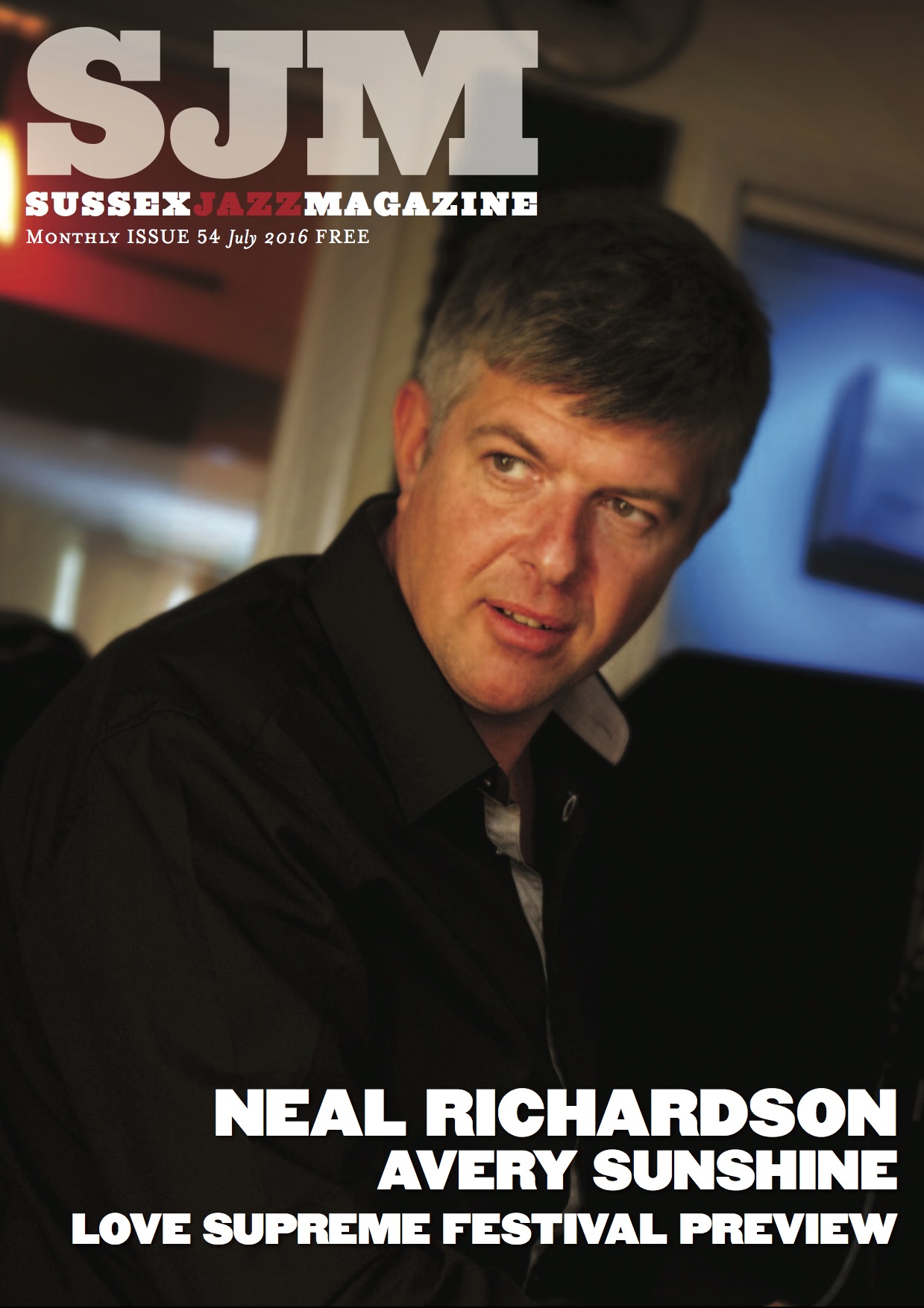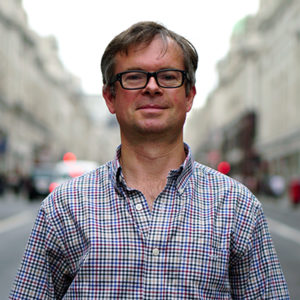Neal Richardson Interview

What has been your personal experience of music education?
“I learnt piano and violin at school, but got bored with the rigid approach. I think I’m a bit dyslexic when it comes to reading musical notes on a page, so found it very tricky (and still do). I’ve always found it much easier to play by ear. I know the ideal is to balance the two though. I picked it up again in my twenties, with piano lessons starting again at to C major, but this time balanced with learning improv too. In this way I discovered I LOVED practising!”
What do you think was your breakthrough in terms of becoming a musician?
“It was always the dream for me, but I was too chicken to try doing it full time. I tried a proper job for a few years in my early twenties, doing music in my “spare” time, as a willing amateur. When that all went belly up, along with my 1st marriage, I found myself thinking “Well, all the bits of life are in pieces on the floor… so I might as well try the thing I’ve always wanted to do”. I guess it was a rather dramatic way to end up following my heart at last. So I’m a bit of a late starter in all this, and am aware it’s a lifelong study, but I couldn’t do anything else now. I then met a certain trumpet player/singer called Sue, and it was a case of “I’ll show you my insecurities if you show me yours…”. I think friends/family gave it 3 months… and I’m still trying 23 years later! Well that’s what she says anyway…"
You've travelled a lot around the world. What have been your favourite places?
“Korea, for the culture shock but kindness; Bahia and Rio, for the music, the sheer raw force of the voice/percussion of real samba; and New Orleans for the incredible, indefatigable human spirit after Katrina, and the life-saving possibilities of the music (We played on the 1st cruise allowed in after the hurricane).”
Tell us how Splash Point Music came about.
“Splash Point is the beautiful cliff at the end of the prom in Seaford, which pre-empts the start of the Seven Sisters. It’s my favourite place on earth, so it was the natural choice to name the company.”
“I’d always wanted to run a record label, from the earliest teenage years saving up paper-round money for LPs and poring over the sleeves.”
“When we came back from 4 years playing abroad (in hotels, ships , clubs), my late aunt kindly offered us shelter in her holiday home in Seaford. We went to a local pub (the gorgeous Snowdrop in Lewes) to see if the music was any good… and were pinned to the wall by the explosive force of Liane Carroll, whom I’d never heard of. We got chatting, and it turned out she’d always wanted to make a solo studio album, and by then I’d just kitted out my studio, having spent over a year looking for the ‘right’ piano.”
“The resulting first recording was Billy No Mates, which I launched the label with, and which helped win two BBC Jazz Awards, which had never happened before. And so it went on – the next one we went to Abbey Road for! It all expanded quite quickly, with us producing four Liane albums and a BBC DVD; three Ian Shaw ones and a documentary film; four albums for Sue Richardson; two EPs for Andy Drudy, and finally my own album Better Than The Blues. We then started a digital-only label to help friends’ self-funded projects get out onto iTunes, Amazon etc.”
“We also ventured into publishing, as no-one in jazz seemed to know about music publishing, and when Claire (Martin) signed, everyone wanted to follow suit, so we suddenly had 55 writers on our books, so I had to stop signing anyone else!”
“That took me to LA to meet various film/tv people to try and place music in U.S. film/TV, but man, that is HARD!”
Tell us about the instruments that you have and the ones that you've played.
“I took up drums at 13, and still have my Ludwig classic kit, with a 400 snare :-). I now own six acoustic pianos (mostly old, and they’re not all here!) and a harmonium. My main one is a [Yamaha] C3, which is fab, and I’ve recorded dozens of projects on, with players ranging from Liane, Ian Shaw to Dave Newton.”
“The greatest thrill, instrument-wise, was in LA being allowed to play Nat’s piano at Capitol for an hour – to think his fingers actually touched those keys… My sister has a lovely theory that she told her kids that when someone great has played an instrument, a little bit of their magic stays in it and inspires you…Talking of which, I happily still have a rare antique Brinsmead Transposer piano that I inherited from my Dad, which has an amazing mechanism for changing key to accommodate singers who may be, ahem, not at their full range. It was given to him by his teacher Percy Mavon Ibbs, who allegedly used it as the rehearsal piano for Dame Nellie Melba’s London concerts! And it’s my real musical link to my dad who died when I was young.”
Who have been your biggest inspirations?
“Musically, Oscar, Wes, and Nat. Life-wise, my Dad and Basil Fawlty!”
What do you get from them?
“Courage to be yourself (eventually in my case!); and the original compulsion and propulsion of this music.”
Where would you most like to go in the world, where you've never been before?
“India, and possibly NZ.”
What are your plans for the future?
“To keep studying, learning, practising, and playing this music as long and as often as possible. I call jazz “the beautiful curse; once it’s in your blood…” I love it, for all the reasons that everyone loves it: the infinite possibilities of improvising, the communication between the players and the audience, and the expression of every shade of emotion.”
Tell us about the regular gigs that you've got?
“Every week’s different of course, but a few regular ones are based around my “pop-up” Splash Point Jazz Club. The format is house Trio (mine) plus a special guest frontliner. It’s great ‘cos it keeps it fresh for the audience, and I get to work with the best players in the country which gives me a massive kick up the proverbial. Guests have included Andy Panayi, Mark White, Jim Mullen, Alan Barnes, Adam Glasser, Nigel Price, Mark Cherrie, Roger Beaujolais, Mark Bassey, Denys Baptiste… to name a but a few. It’s the first Sunday of the month at the brand new Seaford Head golf club building The View; weekly on Thursdays at the Master Mariner in Brighton; I also play/sing solo at Deans Place (Alfriston) in their gorgeous restaurant on Fridays.”
What was it like performing recently at Ronnie Scott's?
“To be honest, it was the gig of my life! I’ve played there before in other bands, but never headlined in my own name, with my full 9-piece band. I love that room, just for thinking what incredible players those walls have heard, so it was a huge thrill for me. I was very nervous the day before, in paroxysms of self-doubt, but on the day I massively enjoyed it, the actual playing, singing, presenting etc, not least as it was the week of my 50th birthday and it was sold out!”
The music industry and jazz
“I love the jazz scene, the diversity and breadth of it, and the commitment of so many volunteers who keep the clubs running. The challenge of course is how we can all continue to make a living from it, especially following the demise of the record industry. In the pop/rock world, the conventional wisdom is that “the money’s in Live” – which is fine if you are playing 1,000+ seater venues, but in our world we are in a niche music which has a very narrow pyramid at the top. I used to joke that you either make less than £10k as a jazz musician or more than £100k, and there’s nothing in between it would seem. And, it’s only a handful of global superstars that make the higher figure.”
“So, the answer is to create new gigs I think, and realise that we have a huge privilege to be doing what we do, so to respect that. It’s always hard to get the balance between professional-pricing vs. wanting-to-play, but it is possible, even in our instant-grat, endless-distraction world. People do need us to lift them or temporarily carry their hearts of an evening, and that’s a huge thing to be entrusted with. Sometimes places just need a gentle reminder of that, and that it is worth paying properly for! If “Life without music would be a mistake”, then I’d go further and say ‘Music without improvisation would be too predictable, and that’s one thing that Life ain’t!’.”
Is there anything else you’d like to say?
“I’d like to say thanks so much for the fantastic service SJM is doing in helping publicise the very-much-alive jazz scene in the south east! :-)”
For more information on Neal Richardson:
For more information on Splash Point Music:



